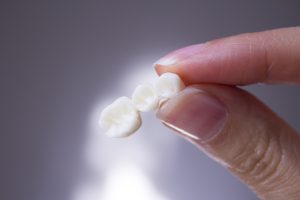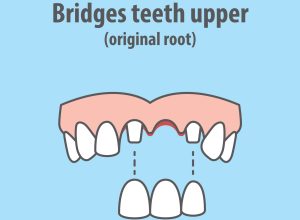Unveiling the Life-Changing Advantages of Dental Bridges
Dental bridges are a revolutionary solution for replacing missing teeth, offering a comprehensive approach to restoring both the appearance and functionality of your smile. These innovative restorations are designed to bridge the gap left by one or more missing teeth, providing a wealth of benefits that can profoundly enhance your oral health and overall well-being.
At Polasek Digital Dentistry & Schaefer Dental Group, our experienced Howell, MI, dentist, Dr. Kyle Polasek, is committed to guiding you through the remarkable advantages of dental bridges. Discover the transformative power of this treatment by scheduling an appointment at our Howell, MI, practice today by calling 517-546-8983.
The Top Ten Benefits of Dental Bridges
Restored Functionality
One of the primary benefits of dental bridges is the restoration of your ability to chew and speak with ease. Missing teeth can make these essential functions challenging, but a dental bridge fills the gap, allowing you to enjoy your favorite foods and communicate clearly once again.
Aesthetic Appeal
Beyond functional benefits, dental bridges also offer a significant aesthetic advantage. Missing teeth can diminish your confidence when smiling or engaging in social interactions. Dental bridges are meticulously crafted to blend seamlessly with your natural teeth, providing a flawless and radiant smile that will uplift your self-assurance.
Preserved Tooth Alignment
Gaps left by missing teeth can cause the remaining teeth to shift, leading to misalignment and potentially compromising your bite. Dental bridges keep your natural teeth in their proper positions, preventing potential orthodontic issues and ensuring a harmonious bite.
Durability and Longevity
When properly cared for, dental bridges can provide a long-lasting solution to missing teeth. With good oral hygiene practices and regular dental check-ups, getting a dental bridge done can serve you for over a decade or even longer.
Protection for Remaining Teeth
Missing teeth can place additional stress and wear on the adjacent teeth, compromising their integrity. A dental bridge distributes the biting pressure evenly, helping to protect the remaining natural teeth and maintain their strength.
Preservation of Facial Structure
Tooth loss can lead to bone loss in the jaw, causing facial sagging or premature aging. Dental bridges help maintain the structure of the jaw, preserving the natural contours of your face and preventing a sunken appearance.
Convenience and Permanence
Unlike removable dentures, dental bridges are fixed and can be maintained just like your natural teeth. This eliminates the need for nightly removal and reduces the risk of misplacing your restoration.
Cost-Effectiveness
Compared to alternatives like dental implants, bridges can offer a more cost-effective solution in certain cases, providing both functional and aesthetic benefits at a more affordable price point.
Boosted Self-Esteem
Beyond the physical advantages, having a complete and radiant smile can significantly boost your self-confidence. By filling in the gaps, individuals often feel more self-assured in social and professional situations.
Improved Oral Health
Closing the gaps in your teeth reduces the risk of food particles becoming trapped, which can lead to cavities or gum diseases. A complete set of teeth encourages better oral hygiene habits, such as regular brushing and flossing, promoting overall dental health.
Potential Drawbacks of Dental Bridges to Consider
While dental bridges offer numerous benefits, it’s essential to be aware of potential drawbacks as well:
- Damage to Adjacent Teeth: Traditional bridges require adjacent teeth to be reshaped to accommodate the supportive dental crowns, potentially weakening them over time.
- Risk of Decay and Disease: If not properly maintained, the area under the bridge can become a breeding ground for bacteria, leading to decay or gum disease.
- Potential for Bridge Failure: Damage to the supporting teeth or the bridge itself can necessitate replacement or an alternative solution.
- Aesthetic Concerns Over Time: As gums and bones recede, a gap may develop between the dental bridge and the gum, creating an aesthetic concern and trapping food particles.
- Limited Lifespan: Even with excellent care, dental bridges have a finite lifespan and may require replacement due to wear, damage, or changes in the surrounding teeth.






